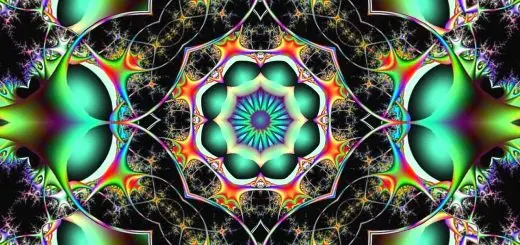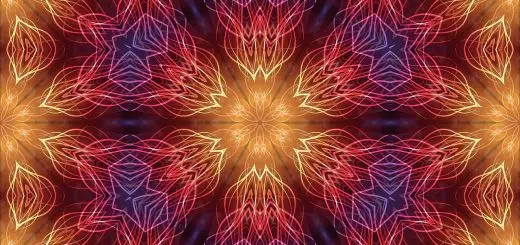Wu Wei and Taoist Philosophy: The Way of Least Resistance

Looking for more amazing products? Check out our online store and explore our collection here! Happy shopping!
Before diving in, please note: This post is for informational purposes only. If you’d like to know more about how we approach topics, feel free to check out our friendly Disclaimer Page.
Hey there, amazing readers! 
We’re committed to delivering quality posts, and your support (even just sticking around despite the ads) means everything to us. So, bear with us, and thanks for helping us keep the good vibes rolling. Now, on to the fun stuff!
TRANSLATE BUTTON AT THE END OF THE ARTICLE
A Quick Overview
In Taoist philosophy, Wu Wei is a concept that emphasizes the importance of following the path of least resistance.
It is often translated as "non-action" or "effortless action," but it does not mean doing nothing.
Instead, Wu Wei encourages individuals to act in alignment with the natural flow of things, without forcing or straining.
By embracing Wu Wei, one can achieve inner harmony, balance, and peace in all aspects of life.
This article will delve into the origins of Taoist philosophy and Wu Wei, the meaning of Wu Wei, its principles, application in decision-making, and its role in achieving balance and harmony.
Understanding Wu Wei in Taoist Philosophy
Wu Wei is a fundamental concept in Taoism, a philosophical and spiritual tradition that originated in ancient China.
It is often described as the art of non-action or the way of least resistance.
Contrary to the Western notion of striving for success through effort and willpower, Wu Wei teaches that true accomplishment comes from aligning oneself with the natural order of the universe.
It is about acting in harmony with the Tao, the underlying principle that governs all things.
Origins of Taoist Philosophy and Wu Wei
Taoism traces its roots back to the legendary figure Laozi, believed to be the author of the Tao Te Ching, a foundational text in Taoist philosophy.
According to legend, Laozi was a sage who lived during the 6th century BCE.
The Tao Te Ching emphasizes the importance of living in harmony with nature and following the path of least resistance.
Wu Wei is a central theme in the text, highlighting the idea that by letting go of excessive striving and control, one can achieve true fulfillment and inner peace.
The Meaning of Wu Wei: The Way of Non-Action
At its core, Wu Wei is about letting go of ego-driven desires and allowing things to unfold naturally.
It is not about being passive or lazy, but rather about trusting in the inherent wisdom of the universe and acting in accordance with it.
Wu Wei is like water flowing effortlessly downstream, finding the path of least resistance and adapting to obstacles in its way.
By practicing Wu Wei, individuals can tap into a deeper sense of intuition, creativity, and spontaneity.
Principles of Wu Wei in Daily Life
Acceptance: Embrace the present moment as it is, without resistance or judgment.
Surrender: Release the need to control outcomes and trust in the natural flow of life.
Adaptability: Be flexible and open to change, adjusting your actions as needed.
Intuition: Listen to your inner voice and follow your instincts with confidence.
Simplicity: Simplify your life by letting go of excess and focusing on what truly matters.
The Concept of Effortless Action in Taoism
Effortless action, as taught in Taoism, is not about being lazy or indifferent.
Instead, it is about acting in a way that is aligned with the natural flow of the universe, without forcing or straining.
Effortless action is characterized by a sense of ease, spontaneity, and grace.
It is about being in a state of flow, where actions unfold effortlessly and harmoniously, like a dancer moving in sync with the music.
Applying Wu Wei in Decision-Making
When faced with difficult decisions, practicing Wu Wei can help individuals find clarity and make choices that are in alignment with their true nature.
By letting go of attachment to specific outcomes and trusting in the natural order of things, one can make decisions from a place of inner wisdom and intuition.
Rather than overthinking or second-guessing, Wu Wei encourages individuals to trust their instincts and act with confidence.
Balancing Effort and Ease with Wu Wei
Finding the balance between effort and ease is key to practicing Wu Wei effectively.
While effort is necessary in certain situations, excessive striving and control can lead to resistance and disharmony.
By cultivating a sense of ease and flow in one’s actions, individuals can achieve greater efficiency, creativity, and fulfillment.
Balancing effort with ease allows for a more harmonious and sustainable approach to life.
Wu Wei and the Art of Letting Things Flow
Wu Wei is about letting go of the need to control every aspect of life and allowing things to unfold naturally.
It is like riding the currents of a river, surrendering to the flow and trusting in the direction it takes you.
By letting go of resistance and attachment, individuals can experience a sense of freedom and liberation.
The art of letting things flow is about relinquishing the need to micromanage every detail and instead embracing the spontaneity and unpredictability of life.
Embracing the Path of Least Resistance
The path of least resistance, as advocated in Wu Wei, is not about taking the easy way out or avoiding challenges.
Instead, it is about finding the most efficient and effective way to navigate obstacles and achieve goals.
By aligning oneself with the natural flow of life, one can conserve energy, reduce stress, and experience greater harmony and balance.
Embracing the path of least resistance requires a mindset shift towards acceptance, adaptability, and trust in the process of life.
Wu Wei as a Key to Inner Harmony
Practicing Wu Wei can lead to a profound sense of inner harmony and peace.
By letting go of the need to control outcomes and trusting in the natural order of things, individuals can experience a deeper connection to themselves and the world around them.
Wu Wei teaches that true fulfillment comes from aligning oneself with the Tao and embracing the inherent wisdom of the universe.
Through the practice of Wu Wei, one can cultivate a sense of balance, clarity, and tranquility in all aspects of life.
The Virtue of Wu Wei in Taoist Teachings
In Taoist teachings, Wu Wei is considered a virtue that leads to harmony, balance, and enlightenment.
By embodying the principles of non-action and effortless action, individuals can cultivate a sense of virtue and integrity in their actions.
Wu Wei teaches that true strength lies in flexibility, adaptability, and alignment with the natural flow of life.
By embracing the virtue of Wu Wei, one can experience a deeper sense of purpose, meaning, and fulfillment in life.
Challenges in Practicing Wu Wei: Overcoming Obstacles
While the concept of Wu Wei may seem simple in theory, it can be challenging to practice in the complexities of everyday life.
Overcoming obstacles such as ego, fear, and attachment requires a deep commitment to self-awareness and mindfulness.
Cultivating the art of non-action and effortless action takes time, patience, and practice.
It requires letting go of old habits, beliefs, and patterns that no longer serve you.
By facing these challenges with courage and perseverance, one can gradually embody the principles of Wu Wei and experience its transformative power.
Conclusion
In conclusion, Wu Wei is a profound concept in Taoist philosophy that teaches the art of non-action and effortless action.
By aligning oneself with the natural flow of life, individuals can experience greater harmony, balance, and fulfillment in all aspects of life.
Embracing Wu Wei requires letting go of ego-driven desires, surrendering to the natural order of things, and trusting in the wisdom of the universe.
Through the practice of Wu Wei, one can cultivate a sense of inner peace, clarity, and purpose.
By integrating the principles of Wu Wei into daily life, individuals can unlock a deeper connection to themselves and the world around them.

The Enlightenment Journey is a remarkable collection of writings authored by a distinguished group of experts in the fields of spirituality, new age, and esoteric knowledge.
This anthology features a diverse assembly of well-experienced authors who bring their profound insights and credible perspectives to the forefront.
Each contributor possesses a wealth of knowledge and wisdom, making them authorities in their respective domains.
Together, they offer readers a transformative journey into the realms of spiritual growth, self-discovery, and esoteric enlightenment.
The Enlightenment Journey is a testament to the collective expertise of these luminaries, providing readers with a rich tapestry of ideas and information to illuminate their spiritual path.
Our Diverse Expertise
While our primary focus is on spirituality and esotericism, we are equally passionate about exploring a wide range of other topics and niches 

To ensure we provide the most accurate and valuable insights, we collaborate with trusted experts in their respective domains 
Our blog originally focused on spirituality and metaphysics, but we’ve since expanded to cover a wide range of niches. Don’t worry—we continue to publish a lot of articles on spirituality! Frequently visit our blog to explore our diverse content and stay tuned for more insightful reads.
Hey there, amazing reader! 
Check out our store here and take a peek at some of our featured products below! Thanks for being awesome!











